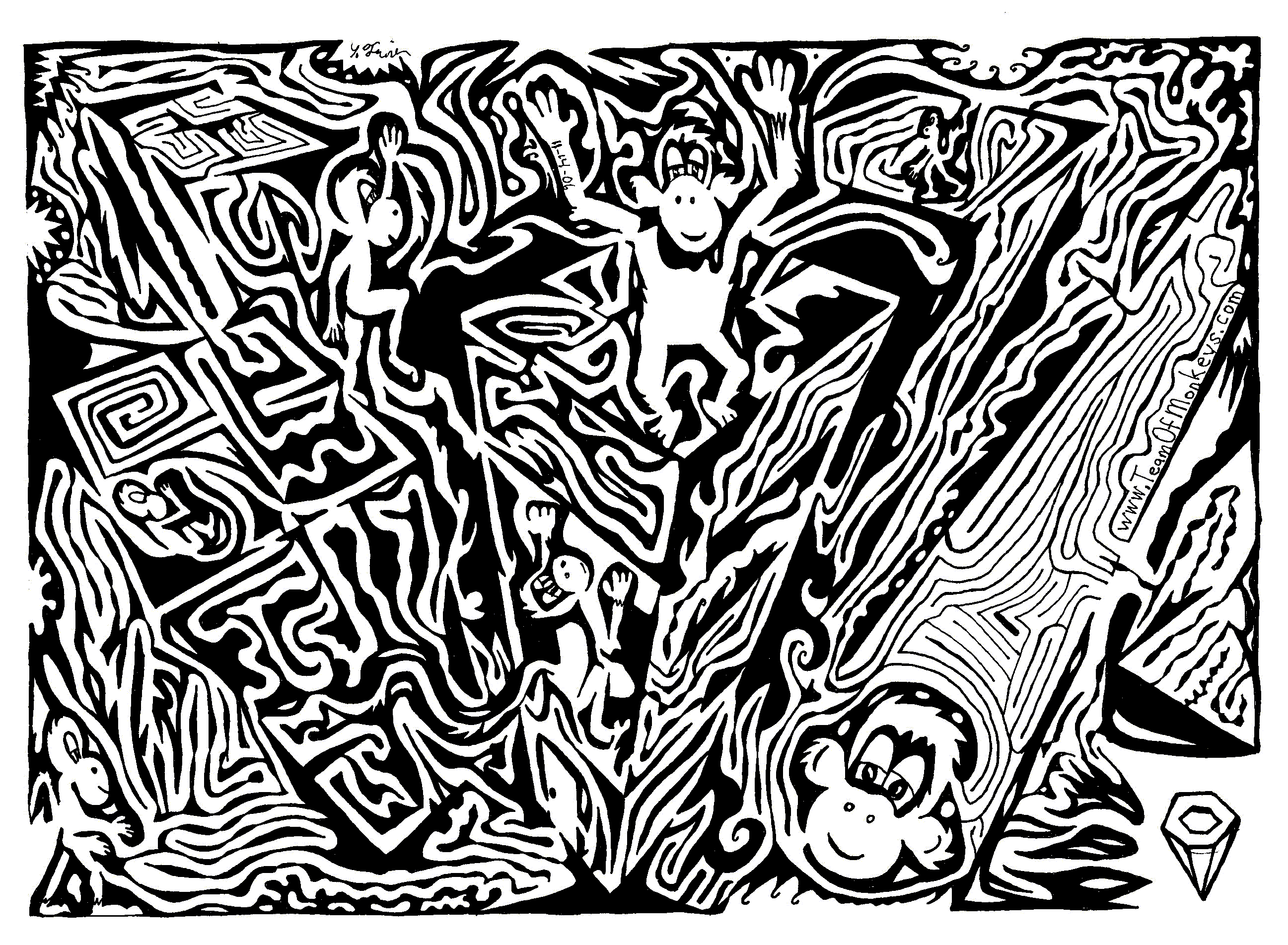'Intelligent' oil droplet navigates chemical maze by Colin Barras
There's some humbling news from the chemical world for anyone who has ever found themselves lost in a garden maze. A simple droplet of organic solvent can find its way through a complicated labyrinth with nothing more to go on than a slight pH difference.
Bartosz Grzybowski's team at Northwestern University in Evanston, Illinois, used a common polymer to fashion a two-dimensional labyrinth some 2 centimetres on each side. They then flooded the maze with strongly alkaline potassium hydroxide solution, before placing a hydrochloric acid-soaked chunk of gel at the maze exit.
After about 40 seconds they placed a droplet of mineral oil containing hexyldecanoic acid at the maze entrance. The oil, which cannot mix with the potassium hydroxide solution, sits on the surface. But it remains still only for a matter of seconds – it soon begins tearing around the maze at speeds of up to 10 millimetres per second, sniffing out the shortest path to the acid-soaked gel, and solving the maze in the process.
"In the movie files you can see the droplet makes decisions," says Grzybowski. "It goes left along the wrong path, decides there's something fishy with that and so it reverses. It looks almost alive."
Primitive intelligence
But while Grzybowski says the droplet displays behaviour that might be called "primitive intelligence", there's a simple chemical mechanism at work.
The droplet leaches its acid into the surrounding solution, losing hydrogen ions in a process known as deprotonation – a process that affects the surface tension of the droplet itself.
"But to the front and rear of the droplet [the surrounding solution] has a different pH," he says, because of diffusion from the acid-soaked gel at the maze exit. Those tiny pH differences affect the amount of deprotonation that happens at the front and rear of the droplet, and this asymmetry sets up a surface tension gradient that forces the droplet into motion. "I would say the droplet is self-propellant," he says.
Grzybowski's team thinks that the behaviour could have implications for cancer treatments. They would like to develop micelles – aggregates of molecules such as balls of lipids – that can navigate pH gradients in the body. "A good reason for that is cancer is more acidic than the rest of the body," Grzybowski says.
Slime mystery
But the chemical behaviour could also offer an explanation for the apparently intelligent behaviour of the slime mould Physarum polycephalum, which 10 years ago was shown to possess similar maze-solving abilities by Toshiyuki Nakagaki, now at Hokkaido University in Sapporo, Japan.
"The [new] finding is interesting since it gives an insight of possible physical mechanisms for Physarum to find a path in the maze," Nakagaki says.
Journal reference: Journal of the American Chemical Society, DOI: 10.1021/ja9076793
Some cool mazes for you to enjoy after reading this article....
Hallucamazenic Maze-A-Delic - Ink On Paper, Winter 2006,
by Yonatan Frimer
www.TeamOfMonkeys.com
Your source for mazes.
Maze of the Statue of Liberty - 2009
Maze of Liberty - 2009 - Yonatan Frimer
Which maze of the statue of liberty do you like better. The psychedelic one or the line art one? Answer with care down bellow in the comments. Thanks
Psychedelic Liberty Maze

Maze of the Statue of Liberty


No comments:
Post a Comment
Note: Only a member of this blog may post a comment.